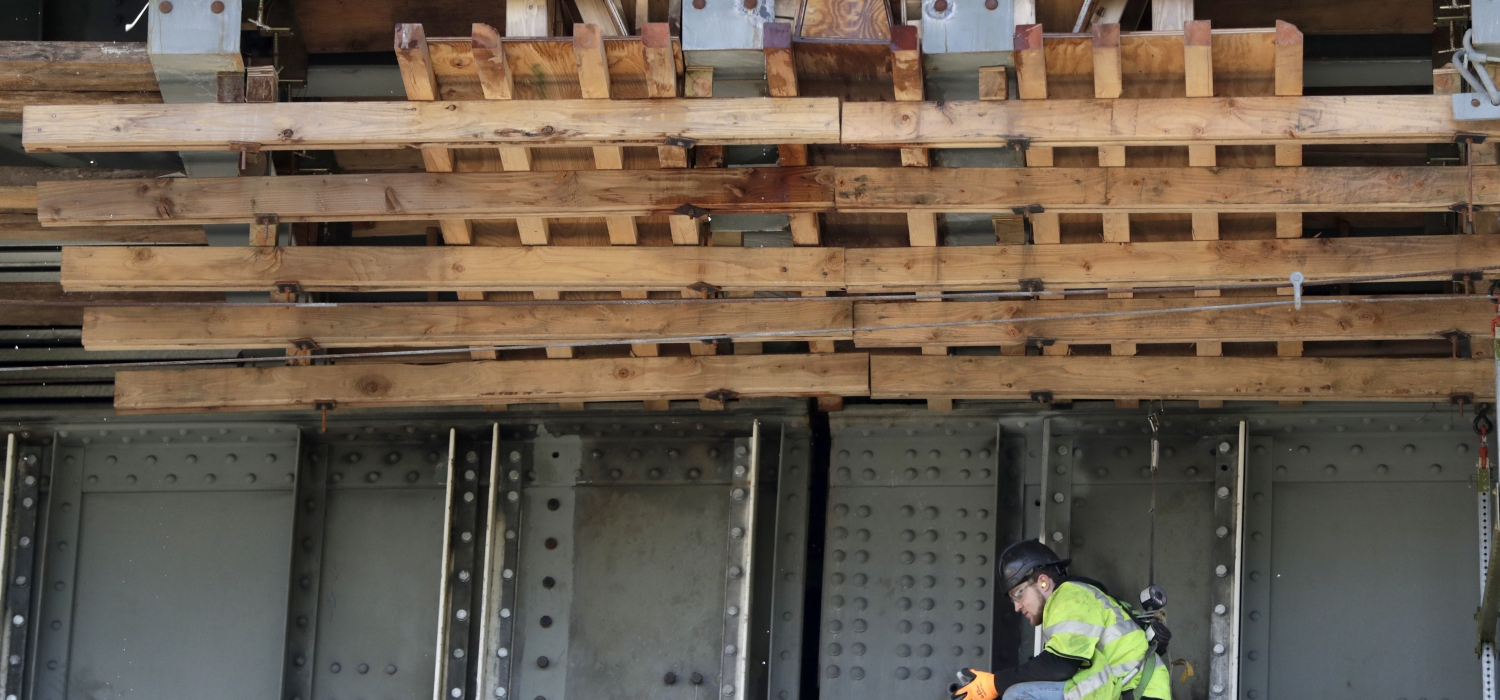Washington’s Theater of Infrastructure: The Trick Is To Get The Joke

Yesterday was a classic example of Washington theater at its best. House Speaker Nancy Pelosi and top Senate Democrat Chuck Schumer left a White House meeting with President Trump, found the TV cameras on the driveway, and announced they all agreed to put together a $2 trillion infrastructure bill.
Of course, there are many details to be worked out, and Schumer noted one: “We told him that… unless he is willing to come up with the pay-fors for this large package, it will never get done, and he agreed.”
If Schumer meant that Trump agreed there would be no deal without consensus on funding, he is absolutely right. If he is waiting for the president to propose a $2 trillion tax increase, he will be waiting for a very long time. In short, there is no agreement on funding, nor will there be one before the next election. Thus, for all the breathless spinning, there will be no deal this year or next.
Washington’s best-kept secret
As if to punctuate the problem. White House Chief of Staff Mick Mulvaney said the president didn’t mean he’d propose a way to pay for that $2 trillion in roads, bridges, public transit, and apparently, increased access to broadband. And congressional GOP leaders, who were not invited to the White House session, were quick to say they’d never support a big tax increase for infrastructure. Or, they might have added, for anything else.
Indeed, the source for funding the infrastructure bill everyone says they want is Washington’s best-kept secret since the Mueller report.
Once upon a time, Washington funded highways and the like with a motor fuels tax. That levy on gasoline and diesel fuel meant that drivers paid to build and maintain roads. But lawmakers have not increased the federal gas tax since 1993, and no plausible increase would pay for $2 trillion in new programs, to say nothing of funding projects already on the books. Rough calculation: It would require a $2 per gallon tax hike to raise $2 trillion over 10 years.
Bad strategy
Besides, much of the early buzz about the 2020 elections is over how to win over suburban moms and middle-American blue collar voters who went for Trump in 2016. Making driving more expensive for either group seems like a particularly bad election strategy.
Lawmakers could pay for new infrastructure by rolling back some of the Tax Cuts and Jobs Act’s tax cuts for the wealthy and corporations, but Democrats have dibs on those revenues for other things, such as middle-class tax cuts. Besides, no Republican will vote to repeal big pieces of the TCJA, their only signature law of the last Congress. Alternatively, lawmakers could look to other, broader taxes, such as a Value Added Tax or a carbon tax. But passage of either is impossible in the short run.
Paradoxically, as the likelihood of a serious funding source fades, the spending promises keep getting more expansive. This seems backwards, but in Washington-world it makes sense.
Not passing a bill
The infrastructure goal once was $1 trillion. Then it was $1.5 trillion. Now it is $2 trillion. But these promises are evanescent. If you are not really going to pass a bill, you may as well not pass a $2 trillion bill. And if you are going to blame the other guys for failing to pass the bill, you might as well hammer them for blocking a $2 trillion jobs bill. Sounds better than killing a $1 trillion effort.
Not to be a cynic, but I suspect that nobody in yesterday’s White House meeting expected the result would be a real bill that President Trump would sign this year or next. They all were playing the same game: trying to make it look like they are doing their best to pass popular legislation but understanding that their real goal was to avoid the blame when nothing happens.
The trick for the rest of us is to get the joke.
